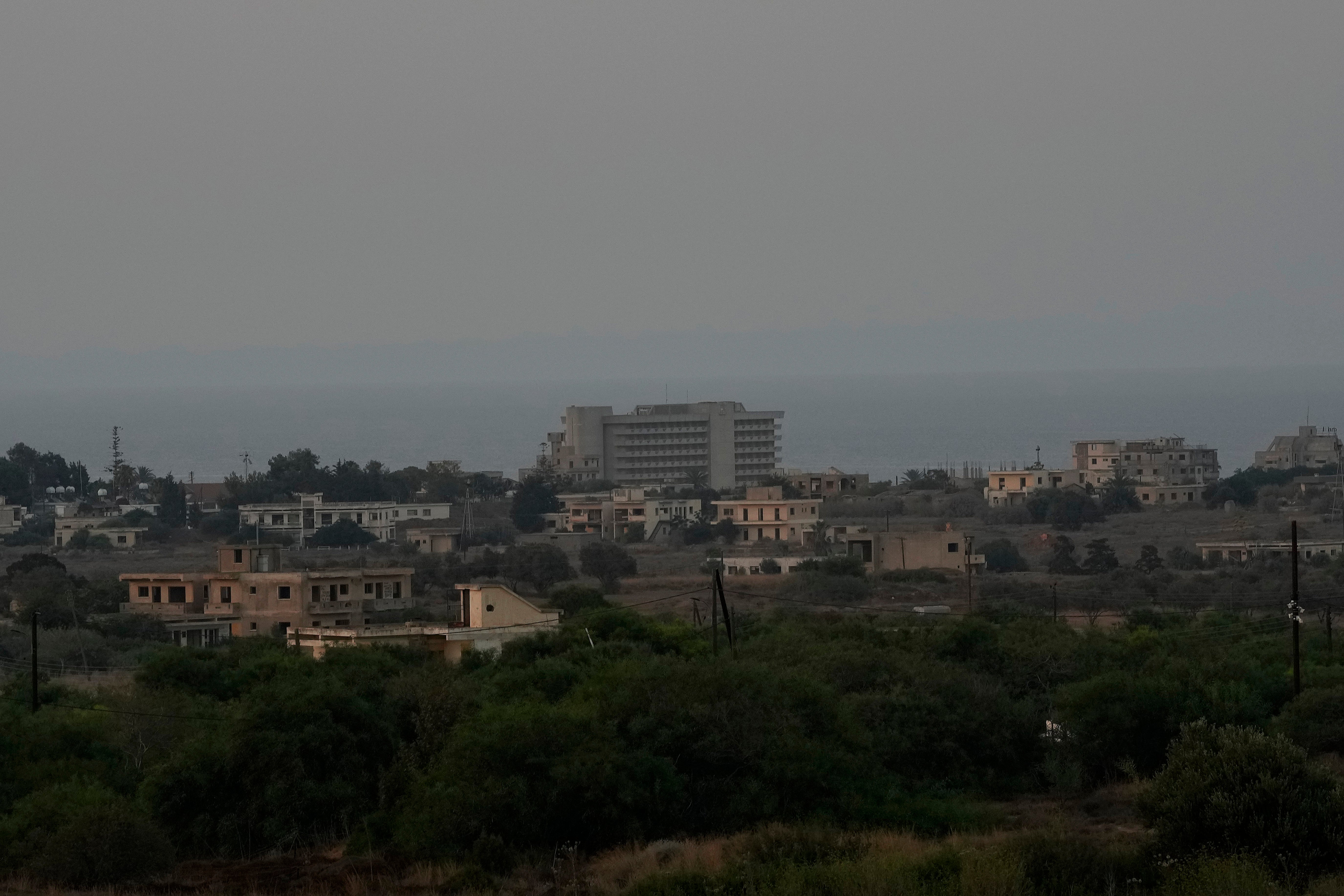Cyprus protests opening of ghost-suburb's residential area
The government of ethnically split Cyprus is protesting to the United Nations and the European Union a decision by Turkey and breakaway Turkish Cypriots to re-open a residential section of an abandoned, military-controlled suburb

Your support helps us to tell the story
From reproductive rights to climate change to Big Tech, The Independent is on the ground when the story is developing. Whether it's investigating the financials of Elon Musk's pro-Trump PAC or producing our latest documentary, 'The A Word', which shines a light on the American women fighting for reproductive rights, we know how important it is to parse out the facts from the messaging.
At such a critical moment in US history, we need reporters on the ground. Your donation allows us to keep sending journalists to speak to both sides of the story.
The Independent is trusted by Americans across the entire political spectrum. And unlike many other quality news outlets, we choose not to lock Americans out of our reporting and analysis with paywalls. We believe quality journalism should be available to everyone, paid for by those who can afford it.
Your support makes all the difference.The government of ethnically split Cyprus on Tuesday lodged formal protests with the United Nations and the European Union over a decision by Turkey and breakaway Turkish Cypriots to re-open a residential section of an abandoned, military-controlled suburb, saying the move violates U.N. resolutions and could scuttle peace efforts.
A statement said Cypriot Foreign Minister Nikos Christodoulides has spoken to EU foreign policy chief Josep Borrell and will dispatch a letter to the five permanent U.N. Security Council members.
Turkish Cypriot leader Ersin Tatar announced earlier Tuesday that a 3.5 square-kilometer (1.35 square-mile) section of Varosha would revert from military to civilian control so that Greek Cypriots could seek to reclaim their properties through the Immoveable Property Commission (IPC), a legal body that is empowered to adjudicate such cases.
Tatar made the announcement ahead of a military parade attended by Turkish President Recep Tayyip Erdogan to commemorate the 47th anniversary of a Turkish invasion that followed a coup aiming at union with Greece. Only Turkey recognizes a Turkish Cypriot declaration of independence and keeps more than 35,000 troops there.
Both Erdogan and Tatar have said that a permanent peace in Cyprus can only come through the international community's recognition of two separate states, upending decades of negotiations to reach a federation-based reunification accord.
Some Greek Cypriot lawyers have urged owners to apply to the European Court of Human Rights-endorsed IPC to legally affirm rights to their property in the north.
But the Cyprus government worries that an application rush to the IPC could lead to a mass property sell-off that Turkish Cypriot authorities would exploit politically to entrench ethnic division and lend legitimacy to their breakaway state.
Cyprus President Nicos Anastasiades said the announcement contravenes U.N. Security Council resolutions that prohibit any change to Varosha's status, calls for its return to its legal inhabitants and that it should come under U.N. control.
Varosha is a suburb of Famagusta that was Cyprus’ pre-1974 tourism hub thanks to its pristine beaches and modern hotels. After Varosha's 15,000 Greek Cypriot residents fled in the face of advancing Turkish troops, the area was fenced-off to prevent any access until last year when Turkish and Turkish Cypriot authorities announced it's “re-opening."
Varosha's former residents denounced the move as a bid to take advantage of their desperation over the area’s future and to psychologically pressure them into selling off their properties. Many Turkish Cypriots also condemned the move as undermining ongoing efforts at reconciliation between the two communities.
Famagusta Mayor Simos Ioannou told the Associated Press that Tuesday's announcement aimed to test Greek Cypriots’ resolve about holding on to their properties. The fact that only a small section and not the whole of residential Varosha was re-opened intends to blunt international reaction to the move, Ioannou said.